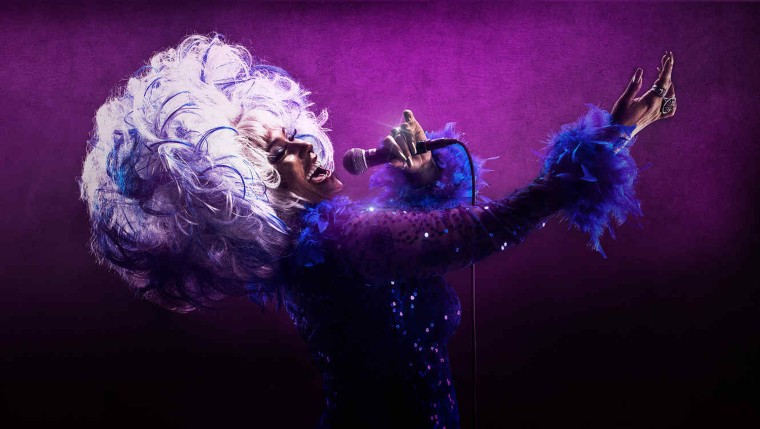In an effort to call attention to LGBTQ representation across the entirety of television, GLAAD has released "Nearly Invisible," its first media report on Spanish-language television in the United States.
“'Nearly Invisible' is a critical step in identifying the current climate for LGBTQ representation in Spanish-language programming,” Sarah Kate Ellis, GLAAD President & CEO, said in a statement “GLAAD will continue to work with Spanish and English-language media to increase the number and quality of stories that accelerate acceptance.”

According to the report, out of 516 characters that appeared onscreen in Spanish-language television between July 2015 and June 2016, only 14 (2.7 percent) identified as LGBTQ, 10 of which were gay men. Half of those characters appeared in at least half of a season's episodes. Only one out lesbian and one trans woman appeared onscreen.
In comparison, GLAAD's latest annual "Where We Are on TV" report, which was released earlier this month, found 4.8 percent of the 895 series regular characters expected to appear on broadcast primetime scripted programming in the coming year identified as LGBTQ.
RELATED: LGBTQ Characters at All Time High on US Television
"Nearly Visible" also pointed out that LGBTQ representation in Spanish-language media often fluctuates from year to year, pointing to 2009 as a time when many LGBTQ characters with fully thought-out storylines had roles on primetime novelas.
"It fluctuates because the studios are working with producers and writers in other countries, so they're getting what comes from those creators. I would love for networks to make more efforts towards inclusion and send a clear message to the companies that these networks get their programming from that they want more LGBT inclusion. It's only appropriate that our media mirrors our society, and young Latinxs in particular want to see themselves represented," Monica Trasandes, Director of Spanish-Language and Latinx Media at GLAAD, told NBC OUT.
RELATED: 'Bury Your Gays': Why Are So Many Lesbian TV Characters Dying Off?
Beyond the general invisibility of LGBTQ characters on Spanish television, Trasandes also pointed out that when these characters do get screen time, they are often stereotypical: gay men become the sassy best friend to the main character, while bisexual women are hypersexualized. Trasandes also argues that these stereotypes are seen in LGBTQ characters on American television as well.
GLAAD's report, however, does provide reason to hope that things will improve with time. An increasing number of Latinos support LGBTQ rights, and an overwhelming majority of Latinos are comfortable seeing same-sex couples publicly display affection.
"Parents and grandparents, who are a big part of the audience, are far more open to LGBT storylines. Study after study shows Catholic Latinxs are much more supportive of LGBT people because more and more of their family and friends are coming out," Trasandes said.
RELATED: Transgender Representation on TV Hitting New Highs
Trasandes also pointed out how representation in media can often be a very personal issue for LGBTQ youth, one that plays a direct part in forming their identity.
"For me, this is really important because I grew up watching a lot of Spanish-language television, and I never saw myself reflected on screen. Often LGBTQ characters were made fun of or invisible, and it sent a very negative message to me. You just don't even know hot to place yourself within a culture because you don't see any representation of it," Trasandes said.
"I think media knows they have an important role in the lives of their audience and LGBTQ audiences need them to step it up."